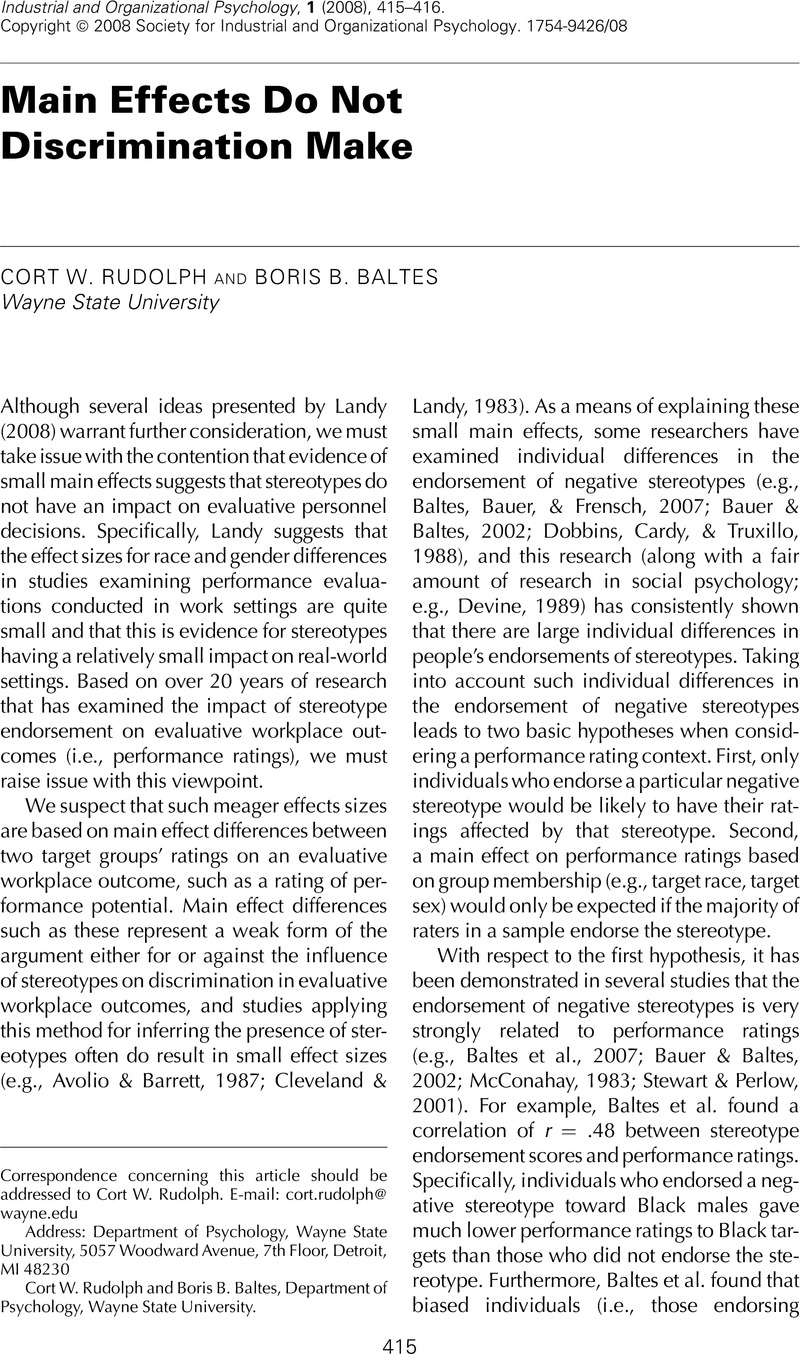Crossref Citations
This article has been cited by the following publications. This list is generated based on data provided by Crossref.
Landy, Frank J.
2008.
Stereotyping, Implicit Association Theory, and Personnel Decisions: I Guess We Will Just Have to Agree to Disagree.
Industrial and Organizational Psychology,
Vol. 1,
Issue. 4,
p.
444.
Dietz, Joerg
Baltes, Boris B.
and
Rudolph, Cort W.
2010.
Examining the effect of negative Turkish stereotypes on evaluative workplace outcomes in Germany.
Journal of Managerial Psychology,
Vol. 25,
Issue. 2,
p.
148.
Rudolph, Cort W.
Baltes, Boris B.
Zhdanova, Ludmila S.
Clark, Malissa A.
and
Bal, Anne C.
2012.
Testing the Structured Free Recall Intervention for Reducing the Impact of Bodyweight-Based Stereotypes on Performance Ratings in Immediate and Delayed Contexts.
Journal of Business and Psychology,
Vol. 27,
Issue. 2,
p.
205.
Li Kusterer, Hanna
Lindholm, Torun
and
Montgomery, Henry
2013.
Gender typing in stereotypes and evaluations of actual managers.
Journal of Managerial Psychology,
Vol. 28,
Issue. 5,
p.
561.
Rudolph, Cort W.
and
Baltes, Boris B.
2013.
Mitigating the Impact of Stereotypes Is More Practical Than Holding People Accountable for Them.
Industrial and Organizational Psychology,
Vol. 6,
Issue. 4,
p.
423.
de Kock, François S.
and
Hauptfleisch, Daniël B.
2018.
Reducing Racial Similarity Bias in Interviews by Increasing Structure: A Quasi-Experiment Using Multilevel Analysis.
International Perspectives in Psychology,
Vol. 7,
Issue. 3,
p.
137.
Rudolph, Cort W
Friedrich, Jack C
Zacher, Hannes
and
Truxillo, Donald
2022.
Precise Conclusions Regarding the Influence of Age Stereotypes Require Precise Operationalizations Thereof.
Work, Aging and Retirement,
Vol. 8,
Issue. 4,
p.
371.
Hardy, Jay H.
Tey, Kian Siong
Cyrus-Lai, Wilson
Martell, Richard F.
Olstad, Andy
and
Uhlmann, Eric Luis
2022.
Bias in Context: Small Biases in Hiring Evaluations Have Big Consequences.
Journal of Management,
Vol. 48,
Issue. 3,
p.
657.



